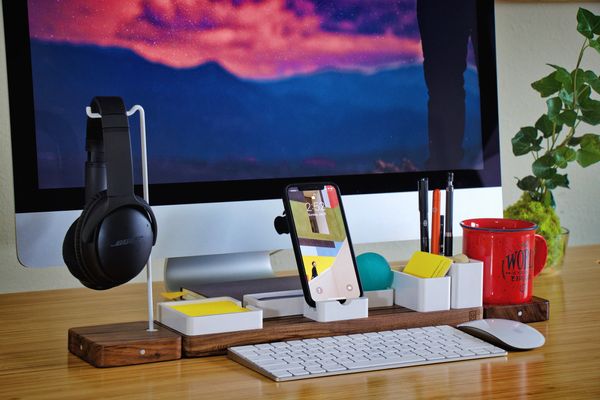
Today’s technology may make it easy to keep in touch with friends and family, but it also can make it feel impossible to unplug from work. With email just a click away, it’s too easy to slip in a few hours of work while we’re at home — or even on vacation.
Working just an hour or two while on vacation may not seem like a big deal, but a recent study by the University of Texas and HomeAway says otherwise. The study found that people who worked an hour or more while on vacation were 43% more likely to have trouble remembering the events of their trip.
In order for an experience to be memorable, it requires engagement and distinctiveness, says Art Markman, a University of Texas psychology professor and lead researcher on the study. If you’re working on vacation, you’ll be less engaged, and you’ll also be sticking to your regular tasks. Both of these factors will make your vacation less memorable (and less enjoyable).
Vacations are crucial for our mental, emotional and physical health, yet a study by Bankrate found that more than half of Americans don’t use all of their vacation days. "If you don't take your time off, you can get burned out more easily and faster," says Sarah Berger, a personal finance expert at Bankrate. "You can get sick and your relationships can suffer if you don't strike that work-life balance that will help you excel at work and in your career."
Other studies have found that vacations reduce stress, decrease depression, help prevent heart disease, improve productivity and lead to better sleep.
So how can we unplug from work long enough to enjoy a quality vacation?
1. Prepare
In the week leading up to your vacation, clean off your desk and tie up any loose ends. If you have projects that you need to pass off to a team member, meet with them to ensure that they have everything they need. Let everyone on your team know that you will be unplugged while on vacation, and that they won’t be able to reach you. If they have any questions, this is the time to ask.
After wrapping up work on the day before your vacation starts, set up an automated email reply, informing anyone who emails that you will be out of the office and unreachable by email. Include the dates that you will be out, and the date and time you will return to the office. You may also include a note that if the matter cannot wait, to contact one of your team members (include their name and contact information).
2. Disconnect
If possible, leave your laptop at home. If you decide to bring it, do not check your work email (and check off all desktop notifications). Turn off all email notifications on your phone as well, and do not contact anyone from work.
3. Stay Present
Try to stay present and focus on your vacation, and don’t let your thoughts wander back to work. The best way to do this is to plan engaging activities. If you have trouble lying on a beach without worrying about work, go sightseeing, parasailing or lose yourself in the company of others.
You may also find that freeing yourself of your usual habits and routines, and trying something new will bring you into the moment. Take a surfing or cooking class, ride a bike instead of driving, or immerse yourself in the local culture and customs.
Try to avoid taking videos of your entire trip, or spending too much time documenting your adventure on Instagram. “You’re taking yourself out of the vacation,” says Markman. “If you’re using your phone that much, you’re not engaged with your surroundings. There is a qualitative difference between seeing something pretty and snapping a picture of it versus walking around staring at a screen.”
4. Ease Back Into Your Routine
At the end of your trip, give yourself at least one day at a home to rest, recover from jet lag, grocery shop and get mentally prepared to go back into work.
When you get back into the office, prioritize and handle just one task at a time. Know that it may take you a few days to catch up, and that’s okay. Don’t plan any meetings for your first day back, and focus on the most important items first. Remember that your team handled everything just fine while you were away, and they can help manage tasks until you’re up and running again.
Although it may feel like you’re too busy to get away, with some careful planning, you can enjoy a quality vacation and return refreshed and ready to get back to work. You’ll probably feel happier and more productive when you do return, making it easier than ever to get things done and hit your goals.








Member discussion